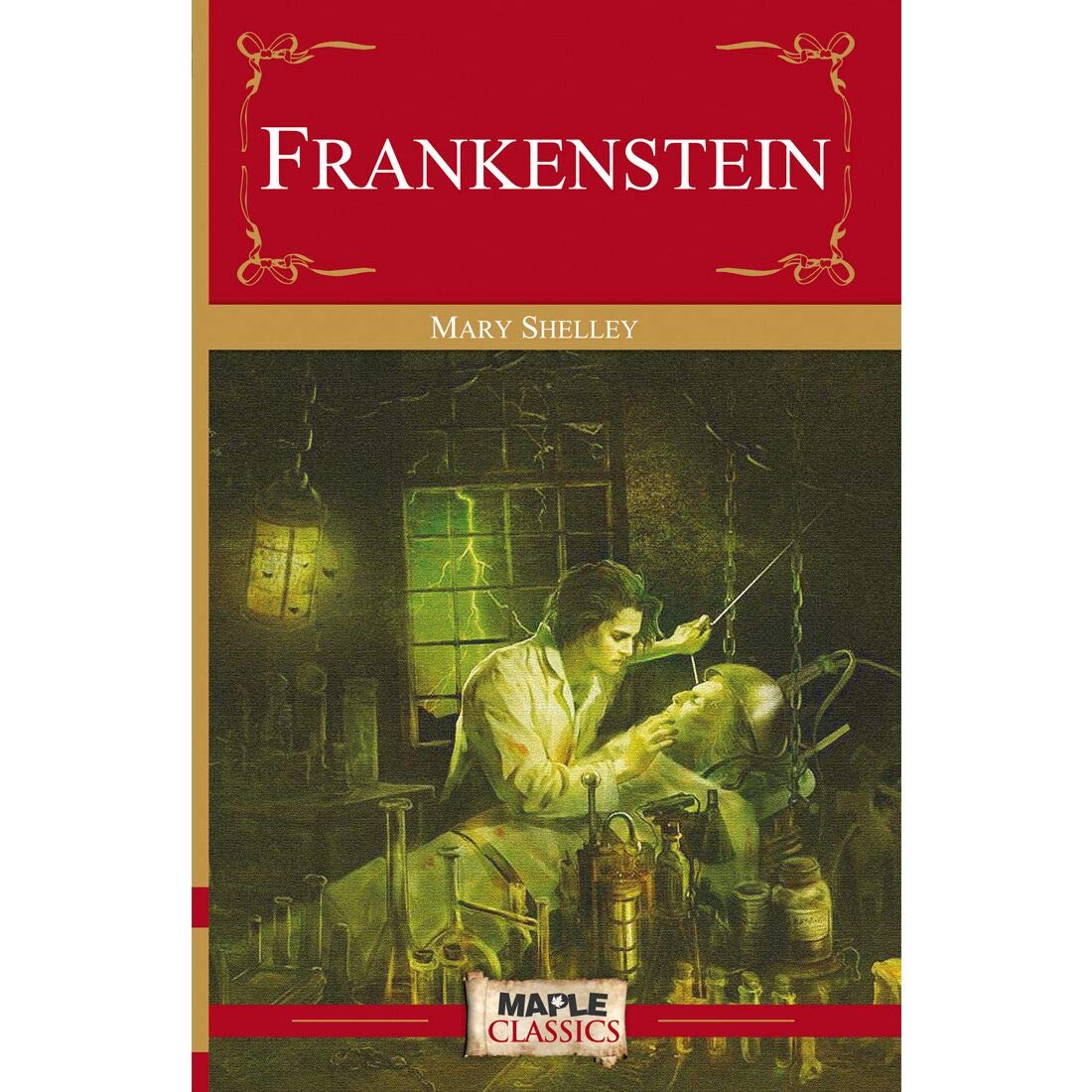Frankenstein is one of those books that people think they know, but they know it not. While popular culture would have fed you images of a mindless monster- stitched, ogre-like, nuts-and-bolts protruding and wreaking meaningless havoc, the real creation of Mary Shelley is far from it.
Frankenstein’s monster, nameless and mateless, is a clever creature- his rationality scared his creator (a clever analogy to how humans may have seemed to a potential creator). Truly, the thing to fear in the novel is the all-too-human Viktor Frankenstein who did not have the rationality to follow through with his actions.
When reading this book, I was reminded of the countless pet owners who adopt creatures far too powerful for their control, and then when things predictably go awry- it is the creature that is blamed and punished and not the owner!
Mary Shelley as the Mother of Sci-Fi?
This book has been viewed as one of several firsts. The first science-fiction novel is certainly a fair title, even though countless individuals would rather give that credit to H.G Wells, the father of science-fiction. Is it that difficult to attribute someone as the mother of any discipline that does not involve childbirth, or does it simply not “sound” the same?
I was mulling over this when reading the author’s introduction in my copy of the novel. Mary Shelley is described first as the daughter of the “famous British author William Godwin” and later as the wife of “romantic poet P.B Shelley”. Nothing is mentioned of her mother Mary Wollstonecraft whose seminal work A Vindication of the Rights of Women even today rings eerily contemporary.
Science-fiction is often labeled as a masculine genre for its infatuation with technology and colonialism disguised as space-travel. Within this simple debate of Mary Shelley v/s H.G Wells as the founder of the genre, perhaps lies the bigger woe of which science-fiction one should subscribe to.
A Lonely Monster
This novel reads less like your average horror thriller and more like a thought-provoking treatise on major philosophical questions.
It may appear dull if not overdone to sympathize with the villain, but I see no other way to view the poor monster. At the core of the novel sits the monster’s deep and piercing loneliness. To me he seems just as in love with the human race as Wall-E, just as caring towards his mates as Edward Scissorhands, his singular view of the world echoes that of Drogon, and at his core, he is but Lucifer begging for his creator’s love.
Frankenstein as an idea is done a lot of disservices when reduced to a mere Halloween prop. Oh well. Do not go about repeating that idea though if you want to be invited to more Halloween parties.
Read this book, I will not consider you a monster if you choose to not finish it. Do share this post and follow this newsletter for more musings of this sort.



